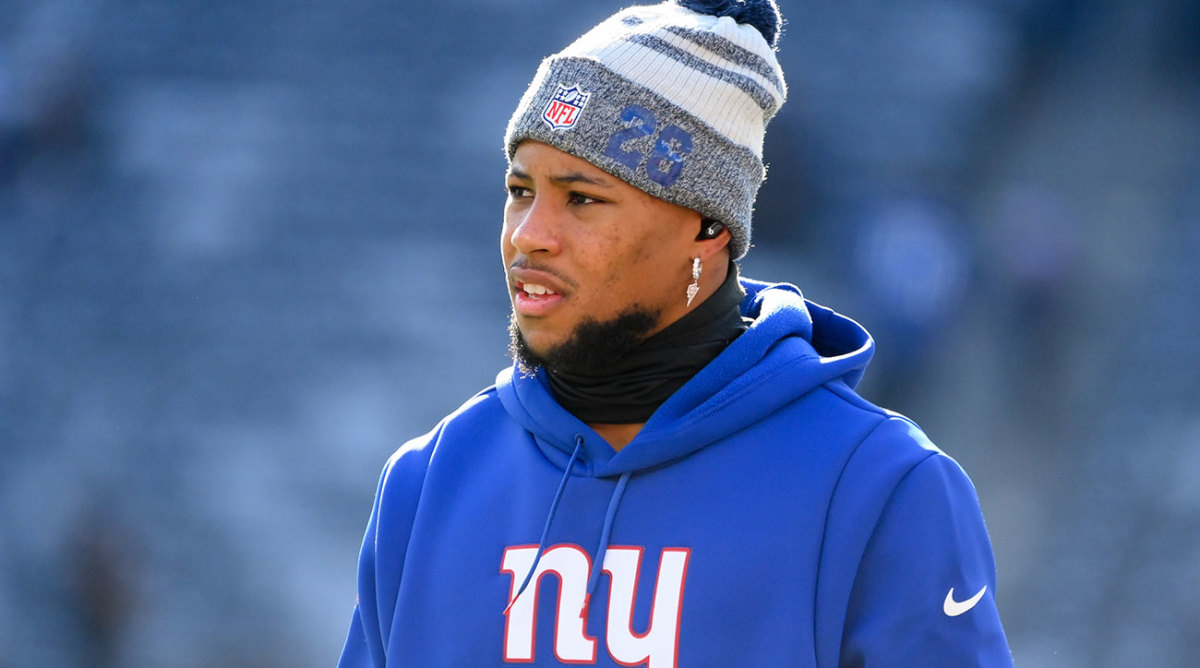Running Backs Are Out of Options as the Position Keeps Getting Squeezed Financially

With the deadline for franchise-tagged players to sign long-term extensions now passed, the real bummer here is that a trio of running backs—Tony Pollard, Saquon Barkley and Josh Jacobs—have no more levers left to pull. There is a bit of finality to the fact that all three will be forced to play under the franchise tag this season (“forced” being the kind of word we should be considerate of, so as not to confuse the plight of the NFL’s most marginalized position with someone struggling to meet the bare necessities).
On this Monday in particular, it feels a little like there is no coming back for the position, which is odd given that two running backs were taken in the top 12 of the 2023 draft. It’s also odd because, as we’ve written before, a receiving back with enough ability to contribute to pass protection and checkdown-pass receptions is more valuable in the NFL than ever before. If a little bit of appreciation was to be shown, if a little nod to an increase in value was on its way, now would have been the time.
NFL running backs have been told by their parents that there will be no dessert until they complete their liver and onions. The position, collectively, has said, “Fine, but we won’t like it.”
Barkley himself said it best when he tweeted just before the 4 p.m. ET deadline: “it is what it is.”
Because that’s all he can really say at this point. Running backs can avoid signing the tag for as long as humanly possible. They can play hardball in the court of public opinion and try to drum up some kind of negotiation-altering fan sentiment. They can seriously contemplate holding out for the entirety of the season, losing a hyper-valuable year of their limited primes. However, once their agents hop on a conference call with the executives guarding the bank vault, the response is still a blank stare.

Perhaps the one good thing that can come from this collective backhand to the position is that maybe one of them can come up with something creative to penalize their teams for a lack of commitment. Maybe Barkley can report to training camp and inform the Giants that he’s only a third-down back now, and that if any reporters ask him about it, he’ll intimate that he doesn’t know why the team is underutilizing one of its best players. Maybe Jacobs can make up some coin on the back end by starting a podcast deeply detailing life in the Raiders’ locker room that he’ll run live in-season until his advertising revenue meets that of a second year on a long-term contract. (Making money on podcasts is that easy, right?) Maybe all three of them will come down with mysterious tummy aches after it’s clear there are no more legal loopholes remaining between them and the reception of a fully guaranteed deal.
I’ll leave the actual operating to those who are paid millions of dollars to scheme, but I’m begging them to hurry up. There needs to be another possible move.
While I am not completely opposed to the franchise tag (I think it helps teams hold onto truly generational players which, in some way, keeps the NFL a sport where there is a specific fan interest in the collective team and not just whomever happens to be in your daily fantasy lineup) there is something helpless about the idea that one of the best classes of one position in recent memory will essentially be rented seasonally like pontoon boats.
Obviously, the NFL will not step in. The running back position collectively will not step in because most of them, when pooling their collective incomes, would dream of reaching $10 million together. Which only leaves the door cracked for the kind of guerilla subterfuge we referenced above.
If no progress is made on that front, the running back position would seem to be headed for a kind of talent extinction. What motivation is there to become the best at something when there is a clear ceiling on what is possible financially?
